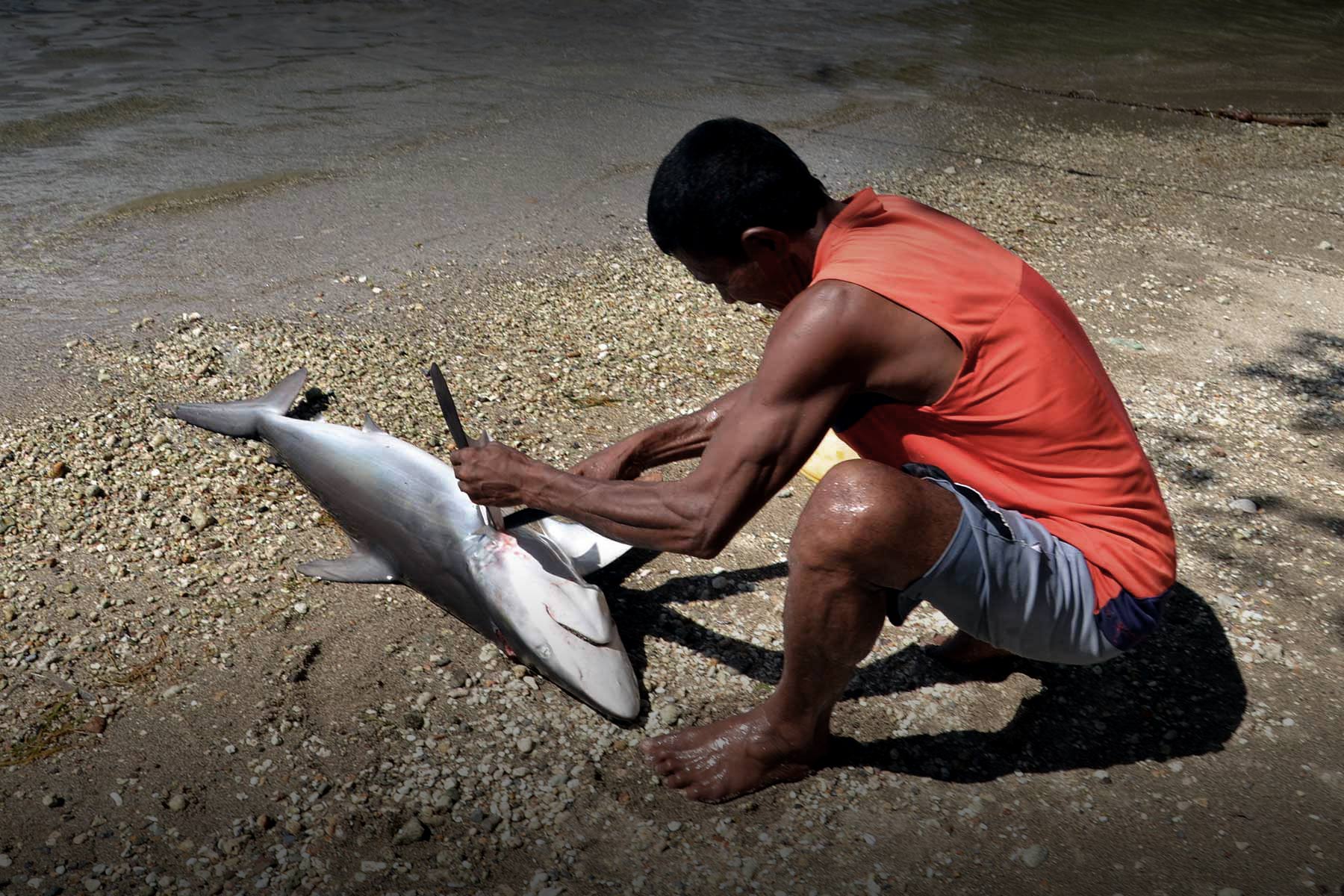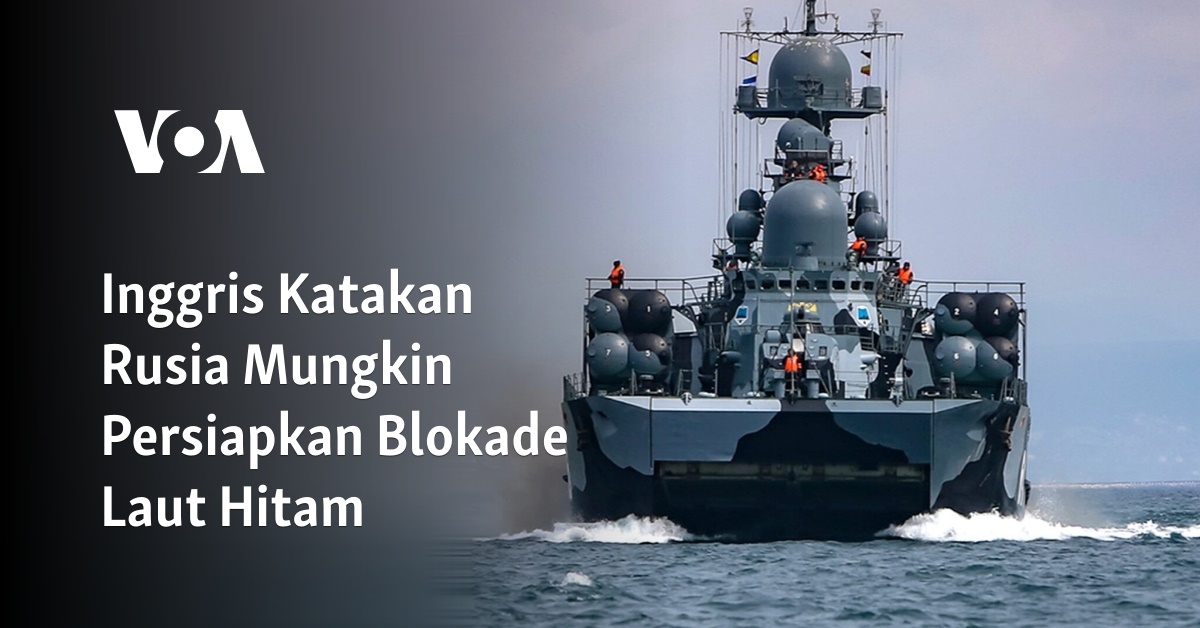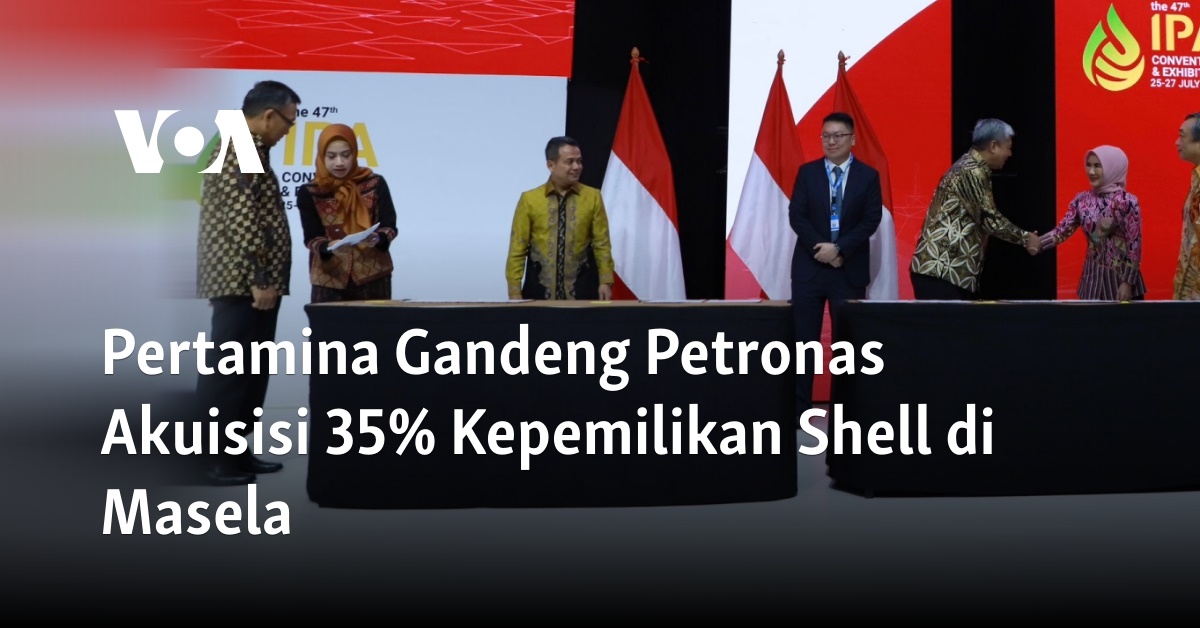
In early June 2022, Petrus Lesawengen (62) welcomed Zonautara.com to his home on Batuwingkung Island in Tabukan Selatan District, Kepulauan Sangihe Regency, North Sulawesi Province, after Senja had just passed. The island is known as “shark island” because most of the fishermen there rely on catching these sea predators to make a living. Despite his age, Petrus still goes out to sea, travelling far from Batuwingkung in pursuit of sharks, a trade that has been passed down through generations. It is no wonder that his two sons, Yohanis (32) and Timotius (26) follow in his footsteps.
“Now it is better. Our boats are larger and equipped with engines. We also use long line fishing gear. Once we caught 28 sharks in one trip,” Petrus said, tidying up his fishing equipment.
From his shark hunting activities, Petrus was able to pay for Timotius’ education, who graduated as a computer and communication technology engineer from Politeknik Nusa Utara, Sangihe. However, despite multiple attempts, Timotius has never passed the civil service entrance exam.
“Now, I go down to the sea with my father,” Timotius added.
During the conversation that night, Timotius took Zonautara.com to see his collection of hundreds of dried shark fins, which they had caught over several months.
“The most common shark we catch here is the silky shark, which we call menehe,” Timotius explained while also showing a few bags filled with dried shark fins.
Aside from the silky shark, they also catch fins from hammerhead and reef sharks. The Batuwingkung fishermen have become familiar with the variety of sharks they catch.
“Although it is seasonal, we rely on catching sharks for a living here, and it has been that way since our ancestors’ time. I was also able to get a university education by selling shark fins,” explained Timotius.
Zonautara.com monitored the arrival of other shark fishermen who had gone to sea the day before. At around 10.30 a.m., a boat about eight meters long docked on the shore. Two fishermen, Noldi Diawang (33) and his colleague, Aljufri Kaemba (35), immediately began unloading their catch.
It seemed they had not been very lucky as they caught only one silky shark, about two meters long. The fishermen dragged the shark onto the beach, and Noldi quickly began slicing it up with his sharp knife. Within a few minutes, he had removed all the fins, one by one. Then he cut open the body and removed its insides.
The shark’s body was then cut into two parts. The pieces of the body and separated fins were washed and placed in a bucket to be taken home, which was not far from the coast. The shark flesh would be sold at Petta Market.
The fins would be dried by being left to dry outside for three to four days, depending on the weather.
“Once they are dry, we gather them and sell them to our big shark fin buyers at Petta Market. Koh Ance is one of them,” Noldi shared.
In Petta, as well as in Batuwingkung, shark fishermen sell their fins to ‘middlemen’. Geric Lumiu, Head of Karantina Ikan, Pengendalian Mutu Dan Keamanan Hasil Perikanan (KIPM) Tahuna, explained that there are three major shark fin buyers in Sangihe, including one in Tabukan Utara named Rommy.
However, during Zonautara.com’s visit, there were no officials monitoring the landing of sharks and other fish. There were no stations set up by the Coastal and Marine Resources Management Administrative Agency or the Fisheries and Maritime Affairs Department. Consequently, there were no activities to record the number of sharks captured or the amount of meat and fins sold.
The absence of official oversight was also acknowledged by several sellers in Petta Market. One seller admitted that on busy days, they could sell hundreds of kilograms of shark meat in one day. They said they could supply up to six tonnes in one delivery and that


